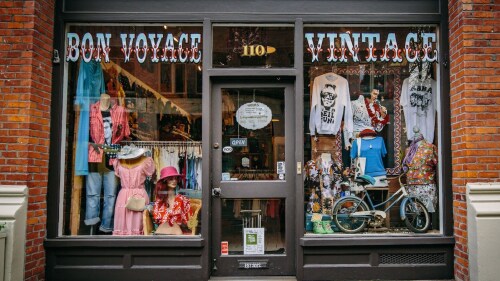More than 2 million people (and thousands of businesses) contribute to the Seattle area’s ~$300 billion economy. But have you ever wondered about the Emerald City’s heaviest hitters?
Consider this Seattle Business 101 — your guide to our region’s five key industries and major employers.
Note: In this article, “Seattle area” refers to King County at large, which includes cities like Bellevue, Redmond, and Renton.
The key industries
These are the five key industries that represent ~50% of the area’s economy, based on the most recent data from Seattle’s Office of Economic Development.
Professional, Scientific, and Technical Services (includes computers) | 200,101 employees
From lawyers to accountants to researchers, this category covers a lot of ground. But Seattle stands out particularly in the sciencey realm, with biotech firms booming, Microsoft nearby, and the brainiacs at the Allen Institute raising our IQ levels.
Government | 184,084
King County is one of the largest employers in Washington, and the City of Seattle has 10,000 employees on its own. This category also covers many different jobs in the public sector, from social services to law enforcement and US military
Health Care and Social Assistance | 179,333 employees
Boasting some of the best hospitals in the country, Seattle’s vitals look strong here. This industry has also been one of the fastest growing sectors, encompassing patient care and nursing facilities.
Information | 148,193 employees
While the industry sounds broad, this circle includes telecommunications, which is prime T-Mobile territory (the company has a whole ballpark named after it — ever heard of it?). You’ll also find plenty of other Internet-driven, info big shots in town like Zillow.
Retail | 134,539 employees
Shop til ya drop. The retail industry in the city certainly gets its biggest boost from Amazon, but locally headquartered giants like REI and Nordstrom would also fit into this category. Hey, we’ve been pros at selling stuff since the Gold Rush.
The major players
Now that we’ve established the major industries, we bet you’re curious for specific names. Whether you’re job hunting (or just “casually prospecting”), here are five major employers based in the area — all that employ more than 59,000 workers on average across the state of Washington.
Amazon
90,000 employees | Retail/Technical Services | Search jobs
Hard to believe, but the lil’ company Jeff Bezos almost named “Cadabra” began three decades ago in a Bellevue basement. It was so small, employees would ring a bell each time a sale was made. With ~470 billion in annual revenue, it’s safe to say their arms would get tired these days.
Boeing
60,244 employees | Manufacturing | Search jobs
The aerospace giant has soared since its humble beginnings in 1916. Its global corporate headquarters are now near that other Washington, but factories in Renton, Everett, and Auburn help boost Boeing’s rep as the biggest airplane builder in the world.
Microsoft
58,400 employees | Technical Services/Information | Search jobs
Founders Bill Gates and Paul Allen moved this trailblazing company near their hometown of Seattle in 1979. Headquartered in Redmond, Microsoft regularly sits high on the Fortune 500 list as one of the top companies in the world — not bad for two college dropouts.
University of Washington
51,849 employees | Educational Services | Search jobs
Howl cool is this, Huskies? Seattle’s prestigious higher ed institution supports 100+ active startups in the state, and has helped launch 258 companies since 1990. It also receives more federal research money than any other public university in the country.
Providence Swedish
22,771 employees | Health Care and Social Assistance | Search jobs
The largest not-for-profit health care provider in the Seattle area has five hospital campuses, a network of 100+ clinics, and thousands of physicians. Beyond day-to-day patient care, it’s known for cutting edge tech, including a new way to perform brain surgery with holographic imagery.
This information is derived from the most recent data published by the Puget Sound Business Journal.












